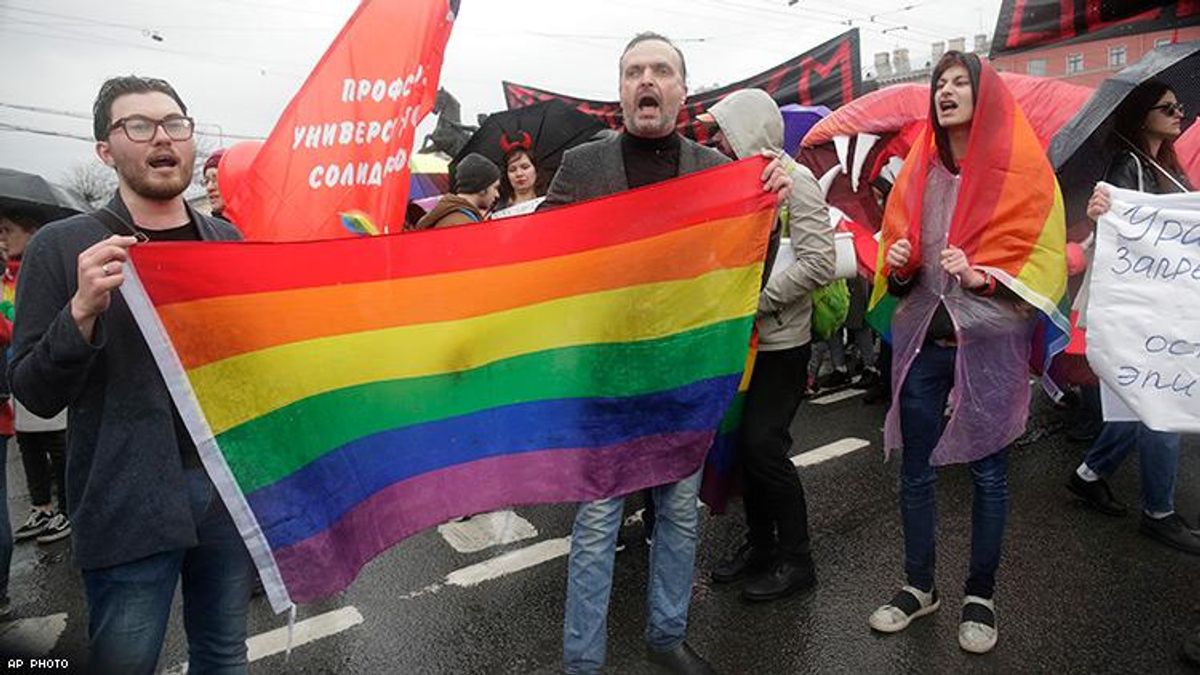The European Court ruled today that Russia's continued ban on rallies at which citizens demand rights for LGBTQ people violates the human rights of the people of the nation.
The court, based in France, ruled that the continued actions by Russia's government run contrary to the European Convention on Human Rights, according to the Associated Press. Russia signed on to that international agreement in 1996.
Russia has faced international criticism for years, particularly regarding a gay propaganda law signed into law in 2013.
Russian police this August arrested 25 LGBTQ activists who were demonstrating in St. Petersburg's Palace Square after they were denied a permit for a demonstration. Days later they fined a Russian teenager for downloading a picture of two men hugging from a social media site.
The case in front of the European Court stemmed from a complaint brought by seven Russian activists. The group cited several rights violations between 2009 and 2014 (a period extending even before the ban became law in Russia) as examples of how the government's halting of demonstrations were clear violations of international agreements.
The court ruled that government officials "had clearly been motivated by the authorities' disapproval of the theme of the demonstrations."
But it remains highly unlikely Russian officials will acknowledge the international court ruling, which called on the Kremlin to implement a "sustained and long-term effort to adopt general measures" to cure the problem.
The same court in 2017 said Russia's propaganda law encouraged homophobia and fined the government.
The European Court criticisms have drawn complaints from Russian officials about the ECHR itself, according to the AP.
In March, Russian state media reported the nation could withdraw from the international agreement over a perceived anti-Russia bias in rulings, according to The Independent. In 2015, Russia passed a law declaring its own laws should always take precedence over the European Court.












































































